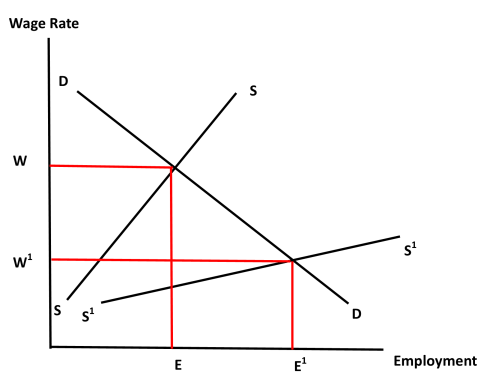Tim Harford on bubbles in general and the great seventeenth-century Tulip mania in the Netherlands in particular:
 It seems all so much easier with hindsight: looking back, we can all enjoy a laugh at the Extraordinary Popular Delusions and the Madness of Crowds, to borrow the title of Charles Mackay’s famous 1841 book, which chuckles at the South Sea bubble and tulip mania. Yet even with hindsight things are not always clear. For example, I first became aware of the incipient dotcom bubble in the late 1990s, when a senior colleague told me that the upstart online bookseller Amazon.com was valued at more than every bookseller on the planet. A clearer instance of mania could scarcely be imagined.
It seems all so much easier with hindsight: looking back, we can all enjoy a laugh at the Extraordinary Popular Delusions and the Madness of Crowds, to borrow the title of Charles Mackay’s famous 1841 book, which chuckles at the South Sea bubble and tulip mania. Yet even with hindsight things are not always clear. For example, I first became aware of the incipient dotcom bubble in the late 1990s, when a senior colleague told me that the upstart online bookseller Amazon.com was valued at more than every bookseller on the planet. A clearer instance of mania could scarcely be imagined.
But Amazon is worth much more today than at the height of the bubble, and comparing it with any number of booksellers now seems quaint. The dotcom bubble was mad and my colleague correctly diagnosed the lunacy, but he should still have bought and held Amazon stock.
Tales of the great tulip mania in 17th-century Holland seem clearer — most notoriously, the Semper Augustus bulb that sold for the price of an Amsterdam mansion. “The population, even to its lowest dregs, embarked in the tulip trade,” sneered Mackay more than 200 years later.
But the tale grows murkier still. The economist Peter Garber, author of “Famous First Bubbles”, points out that a rare tulip bulb could serve as the breeding stock for generations of valuable flowers; as its descendants became numerous, one would expect the price of individual bulbs to fall.
Some of the most spectacular prices seem to have been empty tavern wagers by almost-penniless braggarts, ignored by serious traders but much noticed by moralists. The idea that Holland was economically convulsed is hard to support: the historian Anne Goldgar, author of Tulipmania (US) (UK), has been unable to find anyone who actually went bankrupt as a result.
It is easy to laugh at the follies of the past, especially if they have been exaggerated for the purposes of sermonising or for comic effect. Charles Mackay copied and exaggerated the juiciest reports he could find in order to get his point across.
Update, 15 February: For more detail on the lack-of-bubble in Tulip Mania, you might want to read Anne Goldgar’s post at The Conversation.
Update the second, 30 March: At the Foundation for Economic Education, Douglas French takes issue with Goldgar’s interpretation of Tulip Mania.
Sure, rare bulbs were hard to reproduce and in the greatest demand. However, this does not explain the price history of the common Witte Croonen bulb, which rose in price twenty-six times in January 1637, only to fall to one-twentieth of its peak price a week later.
Peter Garber, tulip mania historian, who, like Goldgar, doesn’t believe tulip mania was a bubble, admitted the “increase and collapse of the relative price of common bulbs is the remarkable feature of this phase of the speculation.” Garber wrote that he “would be hard-pressed to find a market fundamental explanation for these relative price movements.”
Goldgar claims in her latest article that she found no bankruptcies or suicides associated with the bust and that the Dutch economy was not affected by the crash. However, the data I discovered while writing my thesis for Murray Rothbard that is the book Early Speculative Bubbles and Increases in the Supply of Money, was that there was a doubling of bankruptcies in Amsterdam from 1635 to 1637.
Also, Ms. Goldgar must have forgotten the numerous lawsuits she mentioned in her book that were spawned by busted tulip deals. Some of the litigation lasted for years after the bulb price crash in February 1637.
[…]
Ms. Goldgar’s research indicates that only a few hundred people traded tulip bulbs. However, she writes that a few bulbs did sell for 5,000 guilders (the price of a house) and “only 37 people who spent more than 300 guilders on bulbs, around the yearly wage of a master craftsman,” as if this makes her case that this wasn’t a financial bubble.
Readers should note Ms. Goldgar is not interested in prices or market fundamentals. Her research interests are “17th- and 18th-century European social and cultural history; The Netherlands and Francophone culture; Print culture and the culture of collecting; The interaction of society, art, and science.”
In my review of Goldgar’s book in 2007 for History of Economic Ideas, I wrote,
By chronicling the extensive and intertwined network of the real buyers and sellers in the tulip trade, Goldgar puts a human face on tulipmania like no other author has done.”
However, the economics profession will always define tulip mania as Guillermo Calvo does in The New Palgrave: A Dictionary of Economics: “situations in which some prices behave in a way that appears not to be fully explainable by economic ‘fundamentals.'”
Maybe no chimney sweeps were trading in bulbs, but the massive price movements of simple tulip bulbs don’t lie.






